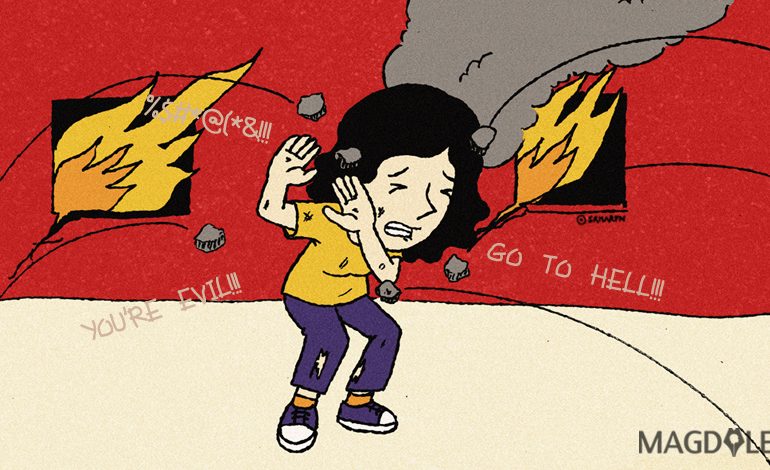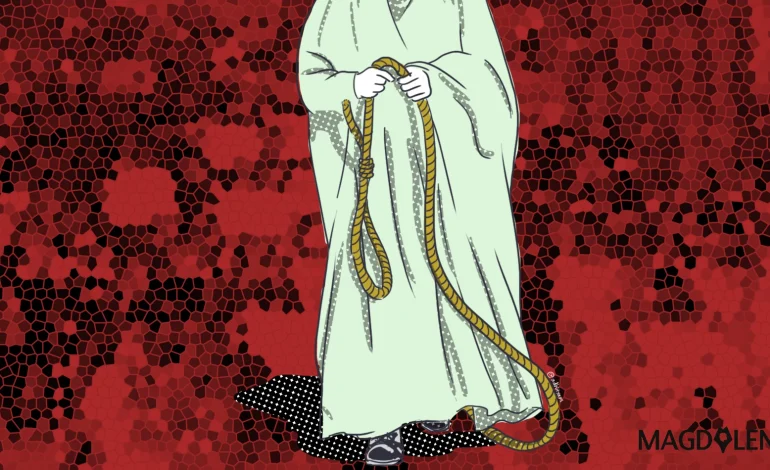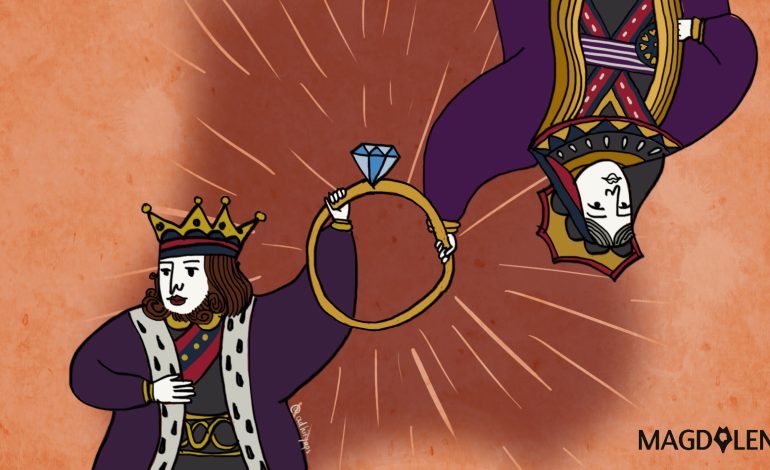Fundamental Attribution Error: Lessons I Learned After Being Attacked by Netizen
Attacking someone because they don’t share a similar point of view is becoming more common lately and partly amplified by internet anonymity.

In the light of the Black Lives Matter movement, I have learned to be more careful about putting my opinion in public (read: posting it on my social media page). As someone not from the community, I might post something inappropriate or offensive without realizing it. I’ve seen a lot retweets from Black accounts reminding us that something we’ve seen as harmless (such as Black hairstyles) could be a form of serious cultural appropriation given the historical background on how Black culture was taken away from them by their oppressor.
Recently on Twitter, I saw a viral TikTok video of a man doing a Lathi challenge. If you’re not familiar with what Lathi Challenge is, it’s a trend in TikTok where you post make-up transformation video from a bare-faced into a full make-up person with traditional clothes and attire (with a twist of horror make-up at the end) to the tune of “Lathi” by Weird Genius. The accompanying caption from the video I mentioned said “It’s so cool that someone made a Papuan version of Lathi” followed with three clapping emojis.
It was cool indeed. The man in the video lip-syncing while his face slowly covered with tribal pattern in white-paint. Yet it disturbed me since the man doing the challenge was light-skinned, and right before the refrain of the song kicked, briefly, in flashes, we could see him covered his face and upper torso with pitch-black paint. The video ended with his silhouette dancing something that appeared to be a tribal dance moves.
By the time I saw the video, it was freshly retweeted to my timeline. Although the retweet and “like” counts kept climbing to tens, not many were making comments under the video other than saying various versions of “cool” or “awesome.” Honestly, I was so distraught by the black-face that I posted a comment noting that the video would be even cooler had a native Papuan performed it, and that performing while being non-Papuan and applying black paint all over one’s body wouldn’t be cool but insulting. I left it at that, thinking that I probably would be ignored for posting a comment under a stranger’s tweet.
Also read: The Magic of Saying Sorry
By the time I checked my Twitter again, I found many replies under my comment noting the black-face. Most of them insulted me, telling me to shut up and enjoy the video, and said that I complicated something that’s not supposed to be a big matter. They called me names from the animal kingdoms, made comments that I should be ashamed for being so narrow-minded. Some people in the comment section told me that their Papuan friends felt represented by the video. There were some comments telling people that one shouldn’t listen to someone with K-Pop profile picture, because I put on a Korean artist as my profile picture. Another one replied saying I brought my fandom shame by making such a stupid statement.
Wow! For once I got to experience online bullying.
Apparently, the original creator of the Papua Lathi Challenge video is a Moluccan who was born and raised in Papua and is familiar with the culture. What makes me sad is that no one reached out to me to educate me for my mistakes of thinking that the black-face paint adorned in the video was a form of cultural appropriation. They could’ve told me that using black paint along with the white, was part of the culture too.
Also read: Pride and Predators: Being Online while Woman
It’s scary knowing people can be so aggressive when insulting someone they have never even met or personally know. The way netizens can easily make fundamental attribution error—in which people explain others’ action based on what “kind” of person they are. In this case, people labeled me a narrow-minded person since I see the video as a cultural appropriation, while they enjoy it and see it as a form of cultural appreciation.
Attacking someone because they don’t share a similar point of view is becoming more common lately, and partly amplified by internet anonymity. This wouldn’t happen if only we learn to be more emphatic and try to put ourselves in others’ shoes rather than being reactive and aggressive towards differences. Unfortunately, rashly interpreting other’s actions to feed our own biases is less energy-consuming than trying to find out the underlying cause of someone’s behavior. Making quick judgment of others also needs less time rather than investigating one’s behavior.
Once we become aware of the biases/quick judgment/fundamental attribution error, we can examine a person’s actions based on their characteristics and their circumstances. It is better to treat people with compassion rather than contempt (such as by attacking or insulting) because it is far more beneficial to us as individuals and in the greater community.
So I learned my lesson about making my fundamental attributional error. And for my mistakes and anyone who felt offended by my comment, I deeply apologized.
Other than that, I learned that people can be so terrifying and judgmental. I hope we all can learn to be more open-minded and see other people beyond their actions. If we do so, we can learn a lot from each other.












